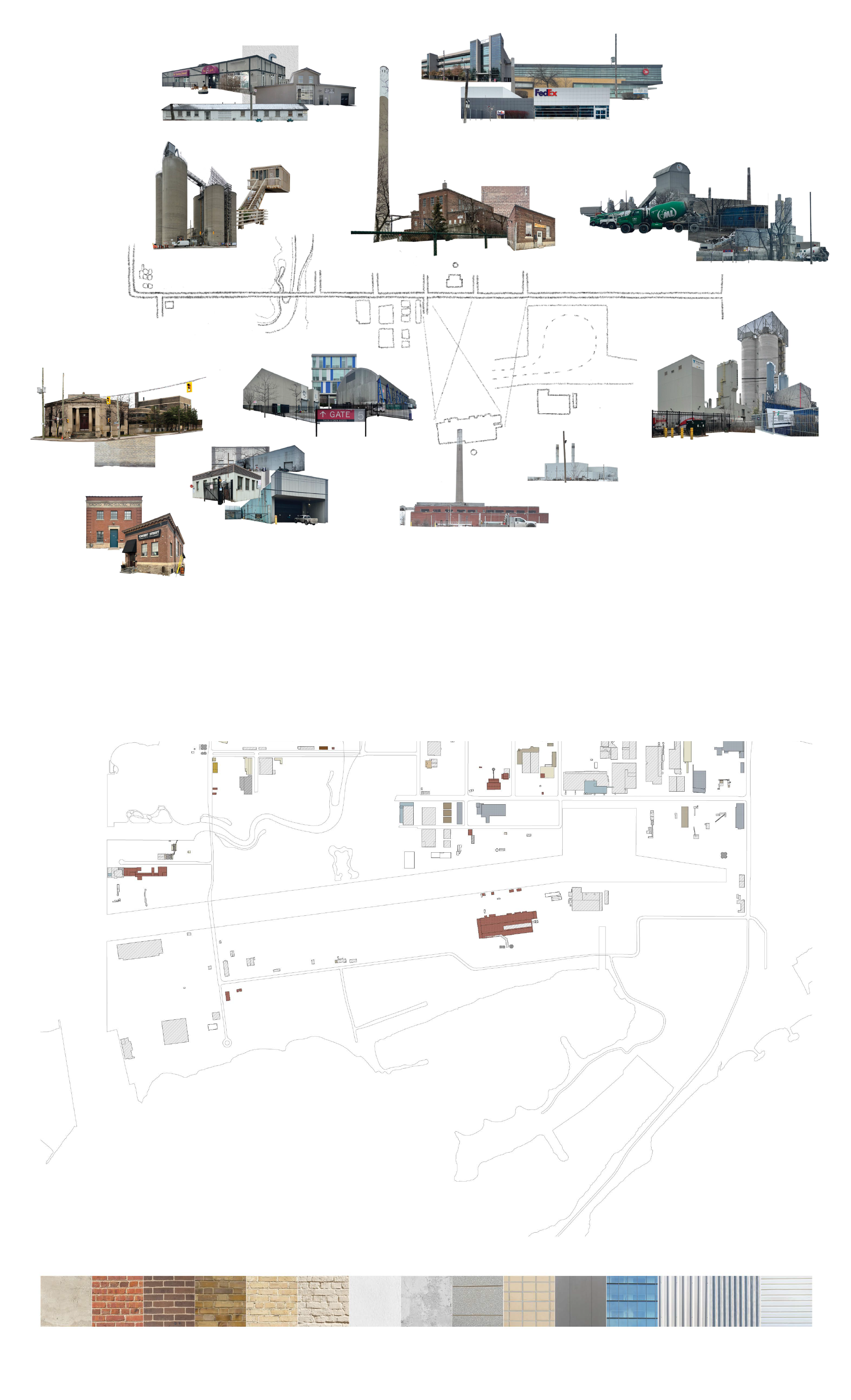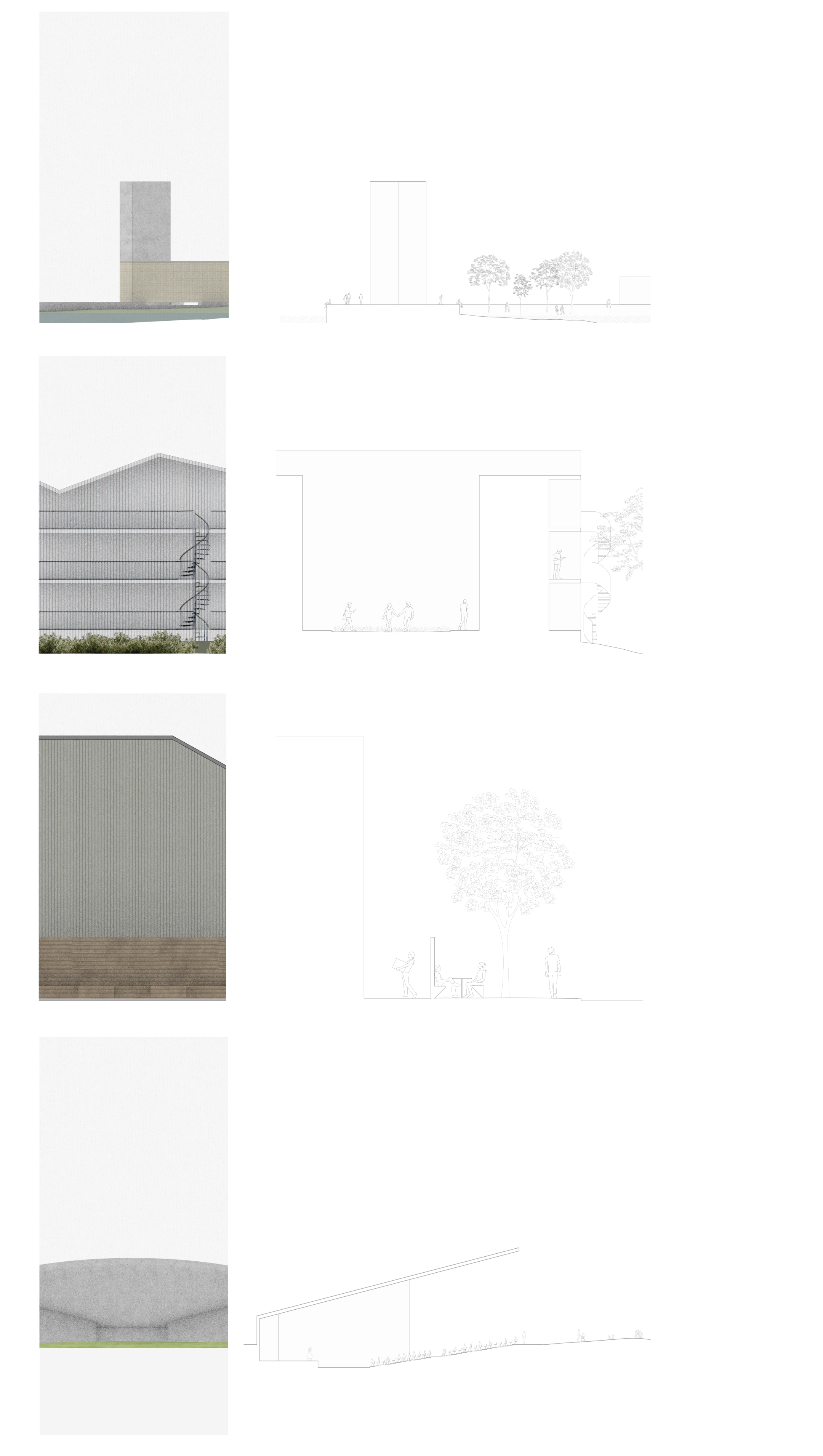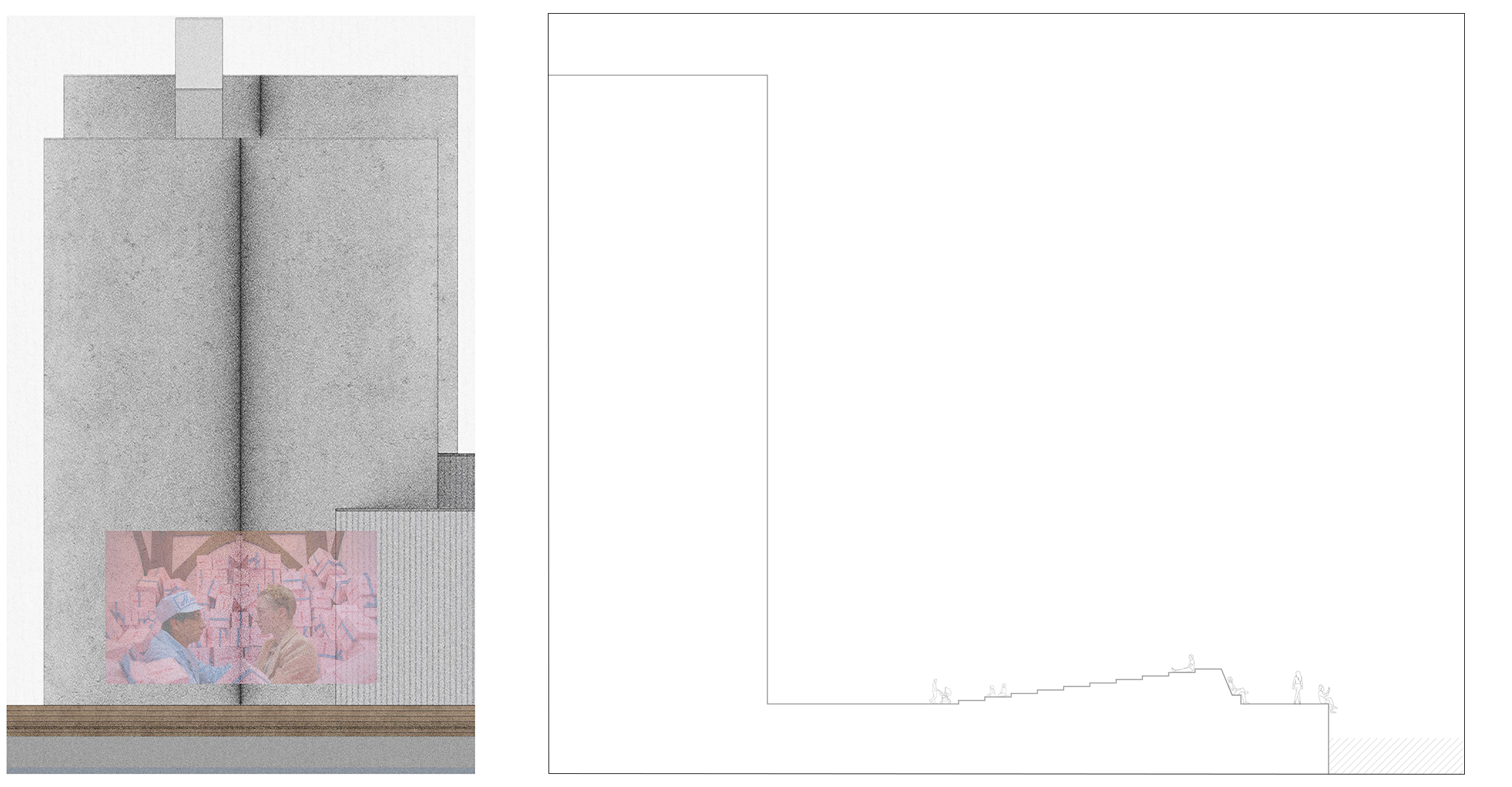A slowly evolving city is a generous city. My thesis asks: How can development, transition and growth in a city still accommodate urban memory and a connection to the past? To what extent, and at what pace can cities be altered before urban memories fade within an unfamiliar built environment? Is a gradually evolving city an answer to livability? My project rethinks the future of Toronto’s Port Lands District and suggests a different model for its development than the one currently in place (and in the process of being implemented). This thesis elicits an incremental process of redevelopment and injects new life into the collection of extant buildings and sites that constitute the Portlands. Various reuse strategies – including refurbishment, retrofitting, rehabilitation, renovation, adaptive reuse, conversion, and materials ‘harvesting,’ in recognition of the embodied energy in existing construction, are used, facilitated by a close documentation of the buildings in the area. An extended urban campus for Toronto Film School is linked by the proposed streetcar line, creating magnets from which later, unrelated development will gravitate. Rejecting the comprehensive master plan for the entire district and the sterile ubiquity of its architectural forms, this scenario supports a more piecemeal evolution of the Port Lands, valuing its industrial heritage and history of film production alongside new uses.





